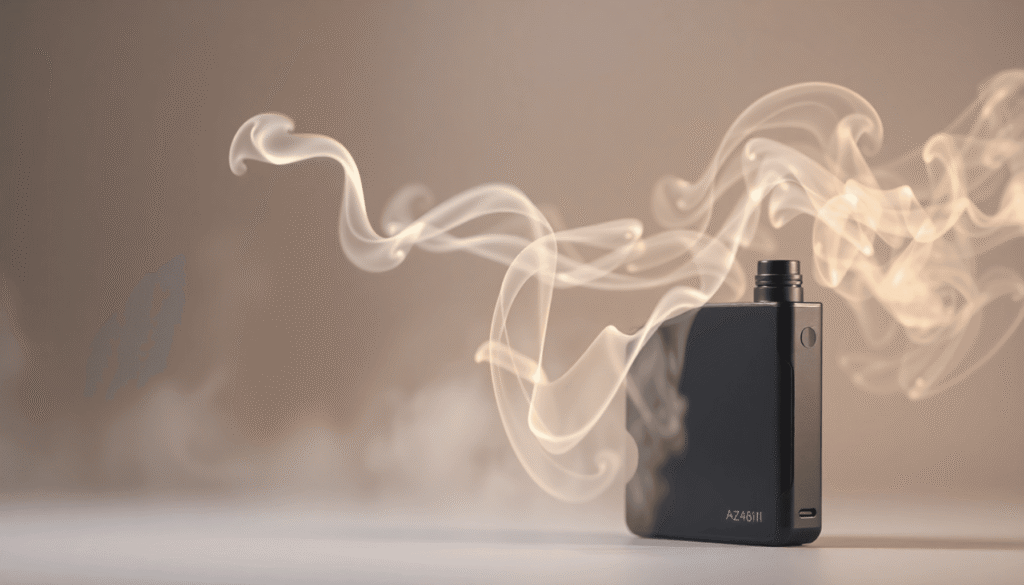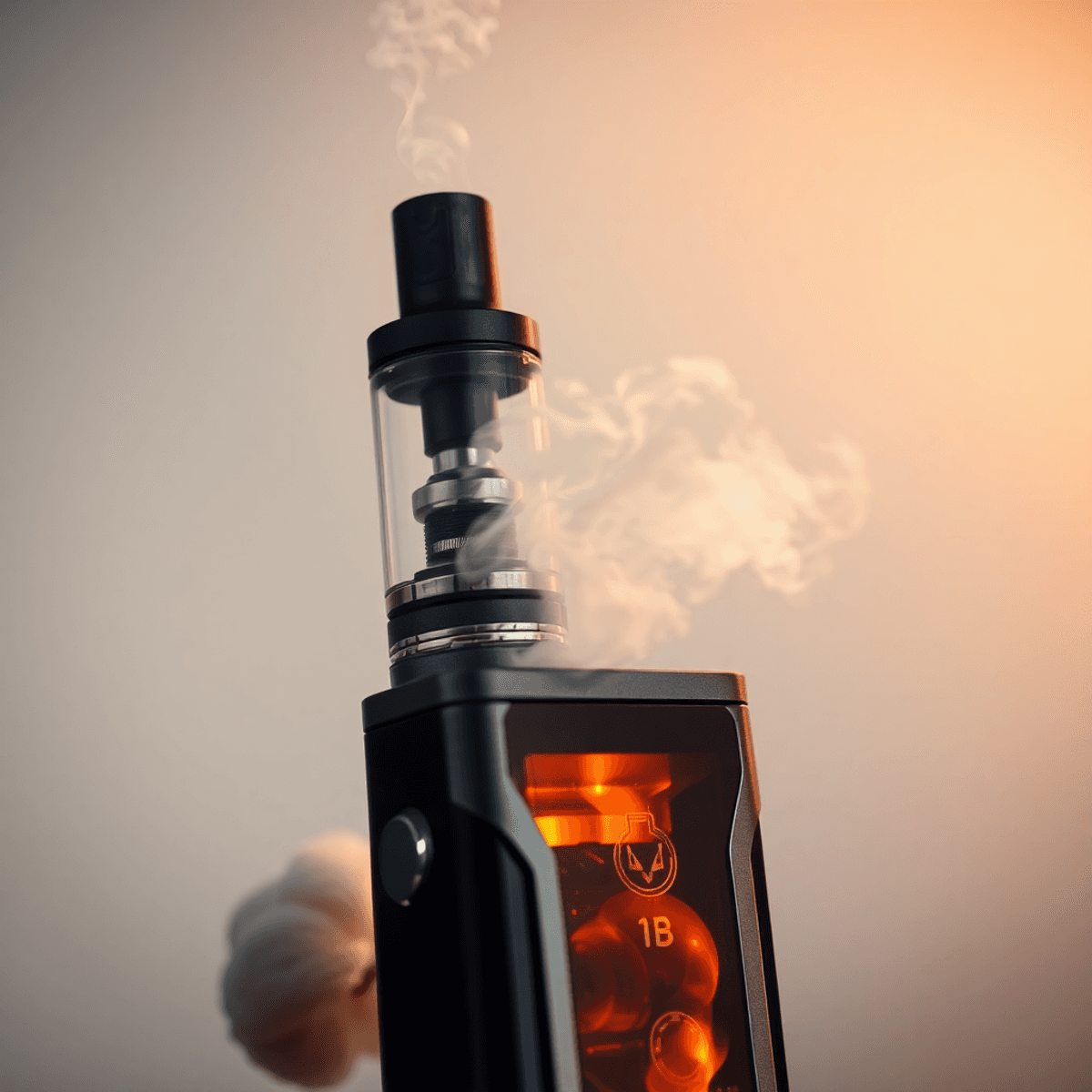The rise of vaping has sparked intense debate in recent years, with millions worldwide turning to e-cigarettes as an alternative to traditional smoking. From sleek pod systems to sophisticated mods, these devices have become increasingly popular, particularly among young adults seeking stress relief.
Many users claim vaping helps manage their anxiety symptoms, creating a complex relationship between mental health and nicotine consumption. The practice of inhaling vapourised e-liquids has evolved from a smoking cessation tool to a perceived coping mechanism for daily stressors and anxiety.
But does vaping actually help with anxiety? This question has divided health professionals, researchers and users alike. While some individuals report immediate calming effects, others experience increased anxiety levels after vaping. The relationship between vaping and anxiety management isn’t straightforward – it’s a nuanced issue that deserves careful examination.
Let’s explore the science behind vaping’s effects on anxiety, examining both potential benefits and risks to help you make informed decisions about your mental health.
The Link Between Vaping and Anxiety
The relationship between vaping and anxiety centres on one crucial element: nicotine. This powerful substance found in most vaping products plays a significant role in how our brains process stress and anxiety.
How Nicotine Affects Mental Health
Nicotine creates a complex dance with our mental health by:
- Triggering dopamine release for temporary mood elevation
- Altering brain chemistry and neural pathways
- Creating a cycle of dependency that affects anxiety levels
Research Findings
Research shows nicotine’s impact on mental health is particularly pronounced in anxiety disorders. When nicotine enters the bloodstream, it initially creates a sense of calm and focus. This immediate relief makes vaping an attractive option for those struggling with anxiety symptoms.
Why Young People Turn to Vaping
Young people are particularly drawn to vaping as a coping mechanism for several reasons:
- Social pressure and stress: Academic demands, relationship challenges and future uncertainties
- Perceived control: The belief that vaping offers a way to manage anxiety independently
- Accessibility: Easy access to vaping products compared to traditional anxiety treatments
- Quick relief: The rapid onset of nicotine’s calming effects
The Concern of Self-Medication
Mental health professionals note a concerning trend where young individuals self-medicate their anxiety through vaping. This choice often stems from:
- Limited access to mental health resources
- Stigma surrounding traditional anxiety treatments
- Peer influence and social acceptance of vaping
- The misconception that vaping is a harmless anxiety management tool
The Cycle of Relief and Dependency
The interaction between nicotine and anxiety creates a challenging situation where temporary relief masks deeper mental health needs. This pattern becomes particularly problematic as the brain adapts to regular nicotine exposure, potentially intensifying anxiety symptoms over time.
Negative Effects of Vaping on Anxiety
While many turn to vaping as a coping mechanism for anxiety, research reveals concerning patterns about its long-term impact on mental health. The nicotine in vapes can exacerbate anxiety symptoms through several mechanisms:
- Increased heart rate and blood pressure
- Disrupted sleep patterns
- Heightened nervous system activity
- Intensified panic attacks
- Amplified stress responses
The Vaping-Anxiety Cycle
The relationship between vaping and anxiety creates a problematic cycle. Users often experience severe withdrawal symptoms when attempting to quit:
- Racing thoughts
- Irritability and mood swings
- Physical restlessness
- Difficulty concentrating
- Increased anxiety levels
These withdrawal effects typically peak within 3-5 days of stopping vape use, making the quitting process particularly challenging. Many users find themselves caught in a withdrawal-anxiety spiral, where the fear of experiencing heightened anxiety prevents them from breaking free from their vaping habit.
Psychological Dependence on Vaping
The psychological dependence on vaping as an anxiety management tool presents additional hurdles. Users might:
- Develop beliefs that they need vaping to function normally
- Feel powerless without their vape device
- Experience anxiety about being unable to vape in certain situations
- Struggle to develop alternative coping mechanisms
Research from addiction specialists indicates that the perceived anxiety relief from vaping is often temporary and masks underlying issues. The nicotine-anxiety connection can create a false sense of relief while potentially worsening anxiety symptoms over time.
Benefits of Quitting Vaping for Anxiety Management
Breaking free from vaping brings substantial mental health benefits that extend far beyond the initial challenge of quitting. Research shows a direct correlation between nicotine cessation and improved anxiety management.
Key Mental Health Improvements:
- Stabilised mood patterns
- Reduced panic attack frequency
- Better emotional regulation
- Improved sleep quality
- Enhanced cognitive clarity
The brain’s natural anxiety response begins to reset within 2-4 weeks of quitting vaping. This reset allows individuals to develop genuine stress management capabilities rather than relying on nicotine’s temporary effects.
Physical Changes That Support Mental Wellness:
- Normalised heart rate and blood pressure
- Improved oxygen levels
- Better breathing capacity
- Reduced inflammation
- Enhanced exercise tolerance
These physical improvements create a positive feedback loop for mental health. When the body functions optimally, the mind follows suit. Many ex-vapers report feeling more energised and mentally resilient after quitting.
Long-term Stress Management Benefits:
- The brain’s natural dopamine production returns to normal levels, which can significantly impact mood and anxiety.
- Stress responses become more measured and appropriate
- Anxiety triggers become easier to identify and manage
- Self-confidence improves through proven ability to overcome challenges
- Financial stress reduces with money saved from not vaping
The journey to better mental health through quitting vaping requires patience. The brain needs time to rebuild its natural stress management systems, including the regulation of dopamine levels. Former vapers often discover they’re more capable of handling life’s challenges without artificial coping mechanisms.
Alternative Methods for Managing Anxiety Without Vaping
Breaking free from vaping opens doors to numerous natural anxiety management techniques that create lasting positive effects on mental health. Here’s a comprehensive toolkit of effective strategies:
Physical Activities for Anxiety Relief
- Regular exercise releases endorphins, nature’s stress fighters
- Yoga combines movement with breath awareness
- Walking in nature reduces cortisol levels
- Dance therapy encourages emotional expression through movement
Mindfulness Practices
- Deep breathing exercises
- Body scan meditation
- Guided imagery
- Progressive muscle relaxation
Creative Outlets
- Art therapy – drawing, painting or crafting
- Journaling thoughts and feelings
- Music therapy – playing or listening
- Gardening or other hands-on hobbies
Building Strong Support Networks
- Join support groups for individuals quitting vaping
- Connect with understanding friends and family
- Seek professional counselling
- Participate in community activities
Lifestyle Adjustments
- Establish consistent sleep patterns
- Create a balanced diet plan
- Reduce caffeine intake
- Set boundaries in stressful situations
These methods become more effective when combined with professional guidance. Mental health specialists can tailor these techniques to individual needs, providing personalised strategies for managing anxiety. Support groups offer shared experiences and understanding, creating a community of individuals working towards similar goals.
Local health centres often provide free resources and workshops focused on stress management. These programmes teach practical skills while connecting participants with others on similar journeys.
Success Stories and Research Findings
Recent studies paint an encouraging picture for individuals seeking freedom from vaping dependency. A 2022 research paper published in the Journal of Adolescent Health revealed that participants in structured youth cessation programmes experienced a 45% reduction in anxiety symptoms within three months of quitting vaping.
Real-Life Success: Sarah’s Story
“I started vaping at 16 to cope with exam stress. The youth programme at my local health centre helped me understand my anxiety triggers and taught me healthier coping mechanisms. Six months vape-free, my anxiety levels have dropped significantly and I feel more in control.”
A groundbreaking study by the University of Manchester tracked 500 former vapers aged 18-25 over 12 months:
- 68% reported decreased anxiety symptoms
- 72% experienced improved sleep quality
- 84% developed better stress management skills
- 91% felt more financially stable
Youth-focused programmes like “Clear the Air” and “Breathe Free” have demonstrated remarkable success rates:
- Peer support networks, which have been shown to significantly aid in recovery from addiction as highlighted in this article
- Cognitive behavioural therapy sessions
- Stress management workshops
- Regular check-ins with mental health professionals
Research from King’s College London highlights the biological basis for these improvements. Their 2023 study found that nicotine cessation leads to enhanced serotonin production – a key neurotransmitter in anxiety regulation. Brain scans of former vapers showed increased activity in areas associated with emotional regulation and stress response.
These findings align with data from NHS Stop Smoking Services, where young people who quit vaping through structured programmes showed twice the improvement in anxiety scores compared to those who attempted to quit without support.
Conclusion
The relationship between vaping and anxiety is complex. While many people turn to vaping for temporary relief from anxiety symptoms, research shows that this choice often leads to increased anxiety levels in the long run.
The answer to the question “does vaping help with anxiety?” is clear: any perceived benefits are temporary and come with significant risks. The cycle of nicotine dependence creates additional stress, making it harder to manage anxiety.
Your mental health deserves better alternatives:
- Practice evidence-based anxiety management techniques
- Seek professional support when needed
- Build a strong support network
- Engage in regular physical activity
- Learn mindfulness and meditation
Breaking free from vaping opens the door to genuine anxiety relief and improved mental wellbeing. By choosing healthier coping strategies, you invest in your long-term mental health rather than seeking quick fixes that ultimately worsen anxiety symptoms.
Remember: true anxiety management comes from developing sustainable, healthy habits – not from temporary solutions that risk your physical and mental health.
FAQs
Does vaping help with anxiety relief?
Vaping may provide temporary relief from anxiety symptoms due to nicotine’s effects, but it is not a reliable or healthy long-term solution for managing anxiety.
How does nicotine in vaping products impact mental health and anxiety?
Nicotine, a key component in most vaping products, can exacerbate anxiety symptoms and negatively affect mental health, potentially leading to increased anxiety disorders over time.
Why do young people turn to vaping for anxiety relief?
Many young people use vaping as a coping mechanism for anxiety because of its popularity and perceived immediate calming effects, despite the potential negative consequences on their mental health.
What are the negative effects of vaping on anxiety and quitting challenges?
Vaping can worsen anxiety symptoms and nicotine withdrawal during quitting often increases anxiety levels, making it challenging for individuals relying on vaping for temporary relief to quit successfully.
What are the benefits of quitting vaping for managing anxiety?
Quitting vaping leads to long-term mental health improvements, including reduced anxiety levels and better stress management skills, highlighting the importance of alternative methods for coping with anxiety without nicotine.
What alternative methods can help manage anxiety without vaping?
Effective alternatives include practicing mindfulness, engaging in physical activity and seeking support from loved ones or professionals, all of which promote healthier stress management without reliance on substances like nicotine.




